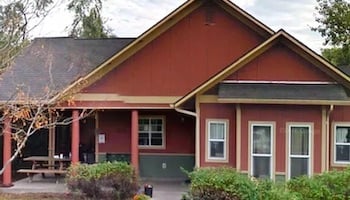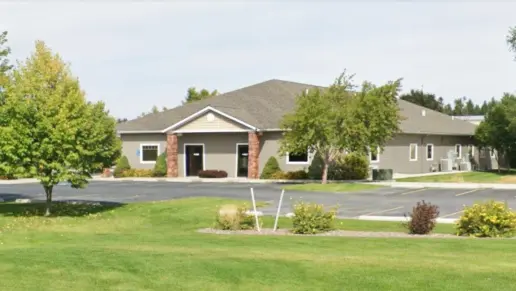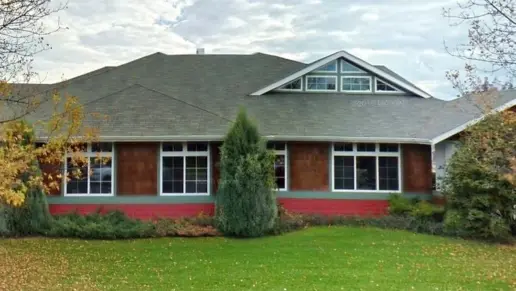They discriminate, humiliate, ect. Treat men with addictions like 2 year olds. You get in trouble, you sit in the hall for 8 hours doing nothing. They need to close this place down. I have a partner who went through there and several friends. SHUT THE PLACE DOWN. The ...
About NEXUS Treatment Center
Located in Lewiston, Montana is the NEXUS Treatment Center. This is a secured residential facility that offers services in lieu of traditional incarceration for qualifying participants. This program works specifically with male offenders who’ve been convicted of a methamphetamine related charge. Many of the men here have either been caught with methamphetamine on their person or were participating in or operating a methamphetamine lab.
This facility is the result of a partnership between the Montana Department of Corrections and Community, Counseling, and Correctional Services Inc.
Therapeutic Recovery Model
Although the residents here are completing a correctional sentence, you’ll find that treatment is rooted in solution oriented recovery that focuses on helping minimize the risk of relapse or criminal behaviors once you complete the treatment program.
They apply a therapeutic community model of treatment here which includes different correctional services and programs that address your substance use struggles and criminal behavior.
There’s a strong focus on helping you think through the choices you’ve made that have led to your behavioral health struggles. You’ll work with counselors through targeted therapy that will help you restructure your mindset. You’ll get to work through what it means to be a thoughtful and productive member of the community by identifying which triggers led to your addiction struggles and criminal behaviors.
In addition to the recovery and criminal programming here, there’s also general healthcare support through transportation services to medical and dental services,
Addiction Education
As you work through the programs here, you’ll find that there’s a big focus on addiction education. The men here get exposed to methamphetamine use from an educational standpoint where they learn about how this chemical dependency affects your body.
This educational support aims to help you understand the “why” behind the counseling you’ll receive and the positive outcomes that follow deliberate choices to stop methamphetamine use.
Facility Overview
Latest Reviews
Rehab Score
Gallery
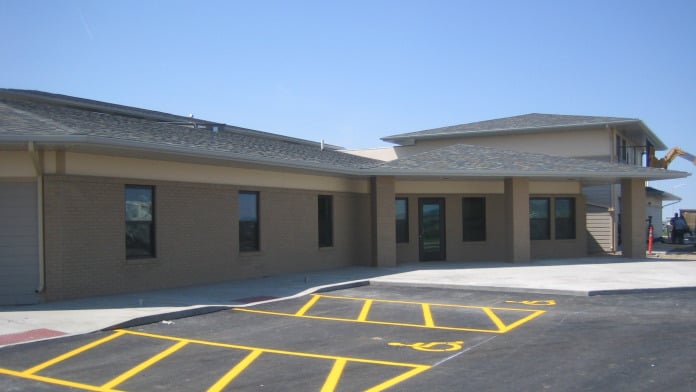
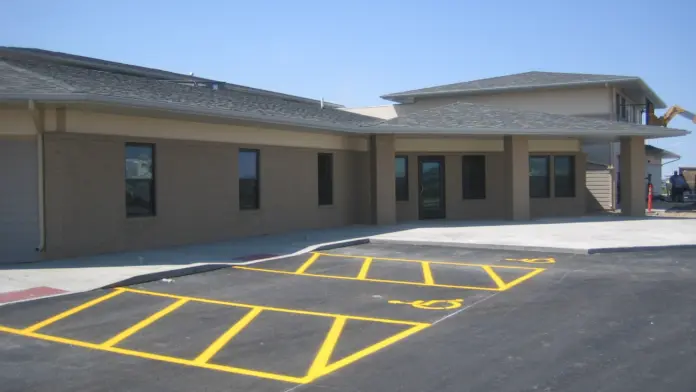
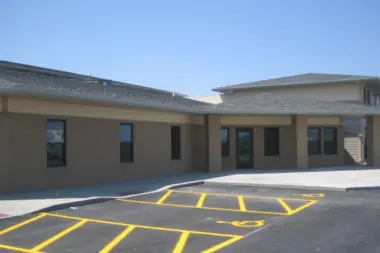
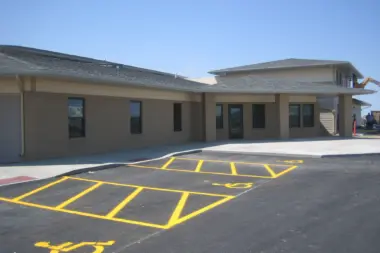
Other Forms of Payment
Self-pay involves paying for treatment out of your own pocket. You can use savings or credit, get a personal loan, or receive help from family and friends to fund your treatment. If you don't have insurance or your insurance plan doesn't cover a specific program, self-pay can help ensure you still get the care you need.
Financial aid can take many forms. Centers may have grants or scholarships available to clients who meet eligibility requirements. Programs that receive SAMHSA grants may have financial aid available for those who need treatment as well. Grants and scholarships can help you pai for treatment without having to repay.
Addiction Treatments
Levels of Care
Residential treatment programs are those that offer housing and meals in addition to substance abuse treatment. Rehab facilities that offer residential treatment allow patients to focus solely on recovery, in an environment totally separate from their lives. Some rehab centers specialize in short-term residential treatment (a few days to a week or two), while others solely provide treatment on a long-term basis (several weeks to months). Some offer both, and tailor treatment to the patient's individual requirements.
Clients participating in a rehab aftercare program have typically already completed detox and/or intensive inpatient treatment and are reintegrating into their home, workplace, and community. Rehab aftercare services generally include outpatient counseling, recovery education, holistic care, and medication assisted treatment (MAT). Many clients also continue to receive recovery support after being discharged from outpatient treatment. Case managers and care teams help clients access the services they need at each phase of the recovery journey.
Often serving as the first step in the addiction recovery process, medically supervised detox involves weaning your body off addictive substances while in the safety of a medically supervised environment. If you are dependent on substances like alcohol, opioids, or benzodiazepines, the associated withdrawal symptoms can not only be uncomfortable, they can be extremely dangerous. In medically supervised detox, a team of medical professionals can monitor your health, vital signs, and progression to ensure your maximum safety and comfort.
Treatments
The goal of treatment for alcoholism is abstinence. Those with poor social support, poor motivation, or psychiatric disorders tend to relapse within a few years of treatment. For these people, success is measured by longer periods of abstinence, reduced use of alcohol, better health, and improved social functioning. Recovery and Maintenance are usually based on 12 step programs and AA meetings.
A comprehensive drug rehab in Montana treats the entire person. Treatment methods address all the underlying causes of addiction and give the individual the tools they need to live a healthy, drug-free life.
Opioid rehabs specialize in supporting those recovering from opioid addiction. They treat those suffering from addiction to illegal opioids like heroin, as well as prescription drugs like oxycodone. These centers typically combine both physical as well as mental and emotional support to help stop addiction. Physical support often includes medical detox and subsequent medical support (including medication), and mental support includes in-depth therapy to address the underlying causes of addiction.
Substance rehabs focus on helping individuals recover from substance abuse, including alcohol and drug addiction (both illegal and prescription drugs). They often include the opportunity to engage in both individual as well as group therapy.
Programs
Adult rehab programs include therapies tailored to each client's specific needs, goals, and recovery progress. They are tailored to the specific challenges adult clients may face, including family and work pressures and commitments. From inpatient and residential treatment to various levels of outpatient services, there are many options available. Some facilities also help adults work through co-occurring conditions, like anxiety, that can accompany addiction.
Clinical Services
Cognitive Behavioral Therapy (CBT) is a therapy modality that focuses on the relationship between one's thoughts, feelings, and behaviors. It is used to establish and allow for healthy responses to thoughts and feelings (instead of unhealthy responses, like using drugs or alcohol). CBT has been proven effective for recovering addicts of all kinds, and is used to strengthen a patient's own self-awareness and ability to self-regulate. CBT allows individuals to monitor their own emotional state, become more adept at communicating with others, and manage stress without needing to engage in substance abuse.
Group therapy is any therapeutic work that happens in a group (not one-on-one). There are a number of different group therapy modalities, including support groups, experiential therapy, psycho-education, and more. Group therapy involves treatment as well as processing interaction between group members.
In individual therapy, a patient meets one-on-one with a trained psychologist or counselor. Therapy is a pivotal part of effective substance abuse treatment, as it often covers root causes of addiction, including challenges faced by the patient in their social, family, and work/school life.
Trauma therapy helps you process traumatic events that you may have witnessed or experienced. This is the first step to healing from these events, integrating them into a more coherent narrative, and improving your resilience.
Research clearly demonstrates that recovery is far more successful and sustainable when loved ones like family members participate in rehab and substance abuse treatment. Genetic factors may be at play when it comes to drug and alcohol addiction, as well as mental health issues. Family dynamics often play a critical role in addiction triggers, and if properly educated, family members can be a strong source of support when it comes to rehabilitation.
Life skills trainings involve all the skills a person must have in order to function successfully in the world. These include time management, career guidance, money management, and effective communication. Truly successful addiction recovery is based on the ability to not only live substance-free, but to thrive. Life skills teaches the practical necessities of functioning in society, which sets clients up for success in life, and therefore sobriety.
Amenities
-
Residential Setting
-
Private Rooms
Contact Information
110 Skyline Drive
Lewistown, MT 59457
